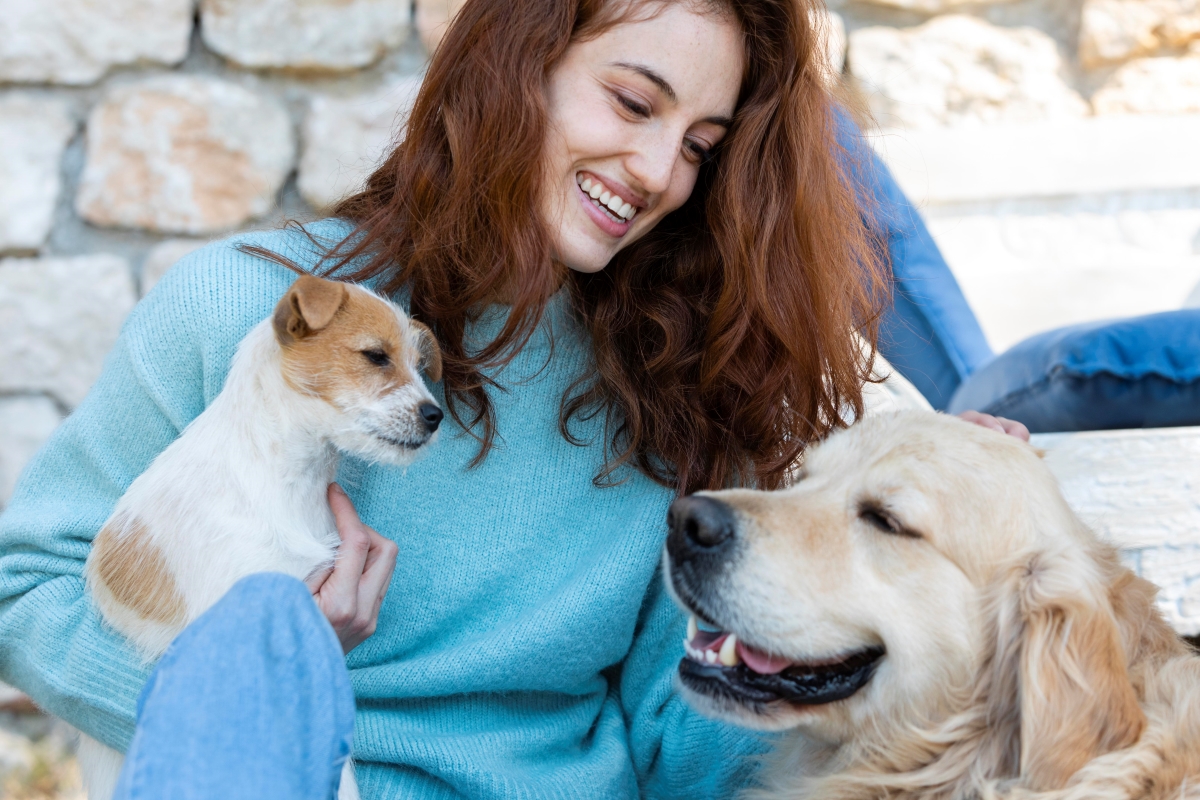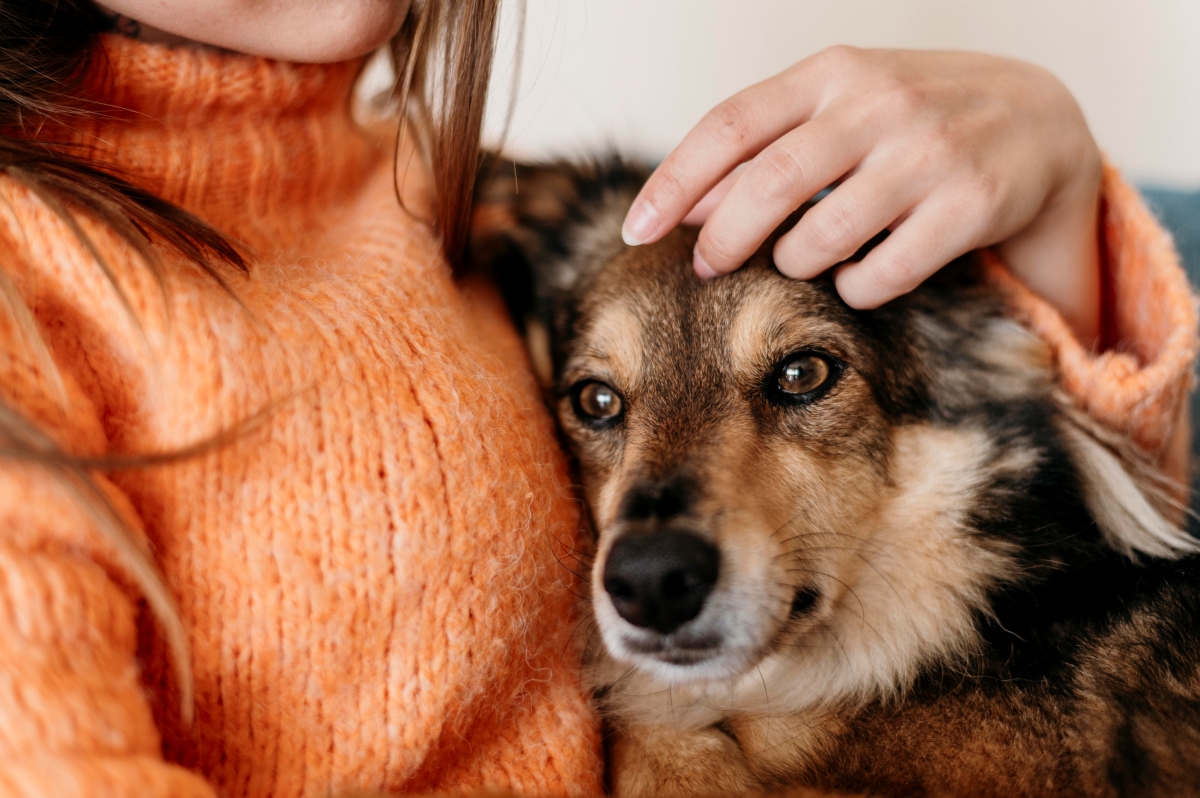Pet Companionship: How Pets Can Enhance Senior Living

As people age, they often experience changes in their lifestyle, social interactions, and physical health that can impact their overall well-being. For seniors, finding ways to maintain emotional, physical, and mental health becomes increasingly important. Pet companionship has proven to be one of the most effective and enjoyable ways for seniors to enhance their quality of life. Pets offer more than just companionship; they provide emotional support, physical activity, mental stimulation, and social benefits. In this article, we’ll explore how pets can enhance senior living and the positive effects they bring to the lives of older adults.
Emotional Benefits of Pet Companionship

The emotional connection between humans and animals is profound, and for seniors, this bond can have a significant impact on their emotional well-being.
a. Reduced Loneliness
As people age, they may experience changes in their social networks. Children grow up, friends move away, and retirement can sometimes lead to feelings of isolation. For many seniors, the loss of a spouse or close friend can intensify feelings of loneliness. Pets, however, provide constant companionship and unconditional love. A dog wagging its tail when you come home, or a cat curling up on your lap can instantly make you feel less alone.
This companionship is especially important for seniors who may live alone. Pets provide a sense of presence and security, ensuring that seniors always have a loving companion by their side.
b. Stress and Anxiety Relief
Interacting with pets has been shown to reduce stress and anxiety. Petting a dog or watching a fish swim in its tank can create a calming effect on the mind. Research shows that spending time with pets can lower cortisol levels—the hormone associated with stress—and increase the production of oxytocin, the hormone responsible for bonding and happiness.
For seniors dealing with the stresses of aging, such as health issues or changes in their independence, pets offer a calming presence. The routine of caring for a pet provides a sense of normalcy and helps seniors stay grounded, easing feelings of anxiety or worry.
c. Sense of Purpose
One of the biggest emotional benefits of pet ownership for seniors is the sense of purpose it brings. Caring for a pet requires attention and responsibility, which can be particularly important for seniors who may feel a lack of purpose after retiring. Feeding, grooming, walking, and playing with a pet give seniors a reason to get up in the morning and stay engaged in life.
This renewed sense of purpose can also positively affect mental health. Having someone (or something) to care for can boost self-esteem and provide a feeling of accomplishment.
Physical Benefits of Owning Pets
Pets improve emotional well-being and encourage physical activity, which is crucial for maintaining health as we age.
a. Encouraging Physical Activity
Staying physically active is essential for seniors, but traditional forms of exercise can sometimes be challenging or unappealing. Pets, particularly dogs, offer a natural and enjoyable way to stay active. Walking a dog regularly provides moderate exercise that helps improve mobility, balance, and cardiovascular health. Even small dogs or low-energy breeds need to be walked, giving seniors a reason to get outside and move.
Cats, too, can encourage physical activity through play. Interactive toys, laser pointers, or even playing with a ball of yarn can engage seniors in movement, keeping them active without the intensity of formal exercise.
b. Improved Cardiovascular Health
Research has shown that pet ownership, particularly dog ownership, is linked to better heart health. Walking dogs help improve heart function by raising the heart rate, which supports overall cardiovascular health. Studies have found that seniors who own pets tend to have lower blood pressure, lower cholesterol levels, and a reduced risk of heart disease and stroke.
The physical benefits of pet ownership go hand in hand with the emotional benefits, creating a holistic approach to health. The physical activity required to care for a pet, combined with the emotional comfort they provide, can lead to better heart health and longer life expectancy.
c. Boosted Immune System
Pets, especially those that go outdoors, expose their owners to a variety of microbes and bacteria that can strengthen the immune system. This exposure helps the body build resistance to common illnesses and infections. Additionally, spending time outdoors while caring for a pet increases Vitamin D levels from sun exposure, which is essential for bone health and immune function.
For seniors, a boosted immune system means fewer colds, better overall health, and a reduced risk of chronic illnesses. Regular exposure to fresh air and the presence of a pet can improve both mental and physical resilience.
Mental and Cognitive Benefits

The cognitive benefits of pet companionship for seniors are profound. Pets can help keep the mind sharp, engaged, and stimulated.
a. Improved Cognitive Function
Caring for a pet involves planning, routine, and problem-solving, which keeps the brain active. Remembering to feed, groom, and exercise a pet engages memory and organizational skills. For seniors, especially those experiencing early signs of cognitive decline, the routine of pet care can help sharpen cognitive function.
Pets also provide mental stimulation through interaction. Whether playing fetch with a dog or teaching a bird to mimic words, these interactions engage different parts of the brain and encourage seniors to stay mentally alert.
b. Reducing the Risk of Cognitive Decline
Research suggests that pet ownership may help reduce the risk of cognitive decline, including Alzheimer’s disease and dementia. The daily tasks of pet care create structure and stimulate cognitive processes, which can slow down mental deterioration. The emotional bond between seniors and their pets can also reduce feelings of stress and anxiety, both known to contribute to cognitive decline.
c. Memory Enhancement
Caring for a pet requires consistency and attention to detail, which can help enhance memory in seniors. Feeding and caring for a pet provides mental exercise that can improve memory retention. Additionally, seniors who adopt older pets, which may have special needs or requirements, engage in more problem-solving and critical thinking, further boosting cognitive function.
Choosing the Right Pet for Senior Living

Choosing the right pet is essential to ensure a positive experience for the senior and the animal.
a. Considerations for Pet Type
Not all pets are suitable for every senior. When choosing a pet, it’s important to consider a senior’s lifestyle, mobility, and physical abilities. Dogs, especially small breeds or older dogs, can be a great option for active seniors who enjoy regular walks. Cats are ideal for seniors who may prefer a more independent pet that requires less physical activity.
Low-maintenance pets like birds, fish, or even small reptiles may be the best fit for seniors with limited mobility or health concerns.
b. Low-Maintenance Pets
For seniors who want the companionship of a pet without the physical demands, low-maintenance animals like cats, birds, or fish are great options. These pets provide emotional and cognitive benefits without requiring daily walks or intense physical activity. Seniors can still enjoy the presence of an animal and the mental stimulation they provide without the need for constant care.
c. Adopt or Rescue
Adopting a pet from a shelter can be a rewarding experience for seniors. Many shelters have older pets already trained, calm, and well-suited to senior living. Seniors who adopt older pets also provide these animals a loving home during their golden years.
Caring for Pets as a Senior

a. Financial and Practical Considerations
Seniors should carefully consider the financial responsibilities of pet ownership, including food, veterinary care, and grooming. Planning and creating a budget can ensure that both the senior and the pet are well cared for.
b. Safety and Health Precautions
Seniors should take precautions to stay healthy around pets, including regular hand washing, keeping up with vaccinations, and ensuring that pets receive regular veterinary care. It’s also important to avoid pets that may pose physical risks, such as large, energetic dogs that may be difficult to manage.
c. Support Systems
Seniors can rely on family members, friends, or pet-sitting services to help care for their pets when needed. Having a support system ensures that pets are cared for during illness, travel, or other unforeseen circumstances.
Conclusion

Pet companionship offers many benefits for seniors, from emotional and physical health improvements to cognitive stimulation and social interaction. Pets provide seniors with companionship, a sense of purpose, and the motivation to stay active. By choosing the right pet and ensuring they have the support to care for them, seniors can enhance their quality of life and enjoy the many joys of pet ownership.





